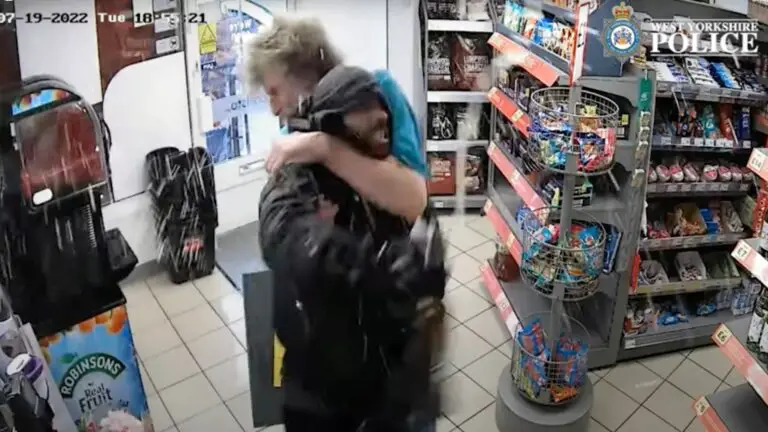Small Shopkeepers Cry Out for Help Amid Shoplifting Epidemic
Small shopkeepers, the heartbeat of our communities, are facing an unprecedented crisis as they grapple with a growing and increasingly violent wave of shoplifting. In this article, we shed light on their plight, their courageous struggles, and the alarming statistics that lay bare the chaos plaguing our nation’s high streets.
Fighting Back Against the Epidemic
In the vibrant city of Leeds, a brave shopkeeper recently confronted a shoplifter who appeared to be carrying a firearm. These small business owners are no strangers to danger, as they often find themselves standing alone in the face of thieves armed with everything from samurai swords to hypodermic needles.
Saj Bhogal, a dedicated father who runs a corner shop in Leeds, shared his story: “I chase after any shoplifters if I see them, I wear trainers to get my stuff back. They’re not just robbing me but taking money from my kids.”
A Broken System
Shopkeepers across the nation are sounding the alarm, and they have good reason. In the past year, the police recorded a staggering 339,206 shoplifting incidents, but the British Retail Consortium believes the actual number to be close to eight million. Shockingly, only 14 percent of these cases resulted in charges, and 54 percent were closed without identifying a suspect.
A Nation in Crisis
Britain, often celebrated as a nation of shopkeepers, now faces a dire predicament as criminals run rampant. Over two-thirds of retail crimes do not even prompt a police response, allowing thieves to act with impunity.
The situation escalated to the point where a brazen shoplifter was caught on camera loading up a duffle bag in a London Co-op, promising to return for more the next day.
The Downgrade of Shoplifting
In 2014, the government downgraded shoplifting of goods worth less than £200 to a summary offense, typically punishable by a meager £70 fine. Shoplifters who admit guilt can pay their fines by post without appearing in court. This has led to claims that shoplifting has been “decriminalized.”
The Cost to Businesses and Communities
The consequences of this crimewave are profound, costing both big businesses and family-owned corner shops nearly a billion pounds annually. Shopkeepers have had to take matters into their own hands, often barring repeat offenders since police resources are stretched thin.
The Diverse Face of Shoplifting
While some individuals steal out of desperation, aiming to provide for their families during tough economic times, others are organized criminals turning retail theft into a lucrative enterprise. Major retailers report that “out-of-control crime” is often committed by “repeat offenders and criminal gangs operating exempt from consequences.”
Violence and Abuse on the Rise
Incidents of violence and abuse against store workers have nearly doubled from 2019-20 to last year. Major chains like Tesco, Sainsbury’s, Boots, John Lewis, and Waitrose are now equipping their staff with body cameras. Physical assaults on Tesco workers have surged by a third.
Retailers Turn to Lock and Key
In an attempt to curb theft, some retailers in the UK have resorted to locking up their merchandise, mirroring practices seen in crime-affected cities in the United States. This includes items as mundane as duvets, pillowcases, cuts of beef, and even cheese.
Hope for Change
Despite the challenges they face, there’s a glimmer of hope for small shopkeepers. Policing Minister Chris Philp has called for a “zero-tolerance approach” to shoplifting, promising a crackdown. Home Secretary Suella Braverman also advocates for a stronger response to theft.
A Plea from the Frontlines
Small businesses, often deeply intertwined with their communities, are bearing the brunt of this crime wave. They call for increased support, tougher penalties for shoplifters, and a more responsive judicial system.
In the face of adversity, these small shopkeepers continue to serve their communities. It is our collective responsibility to ensure they can do so without fear and with the support they need.

